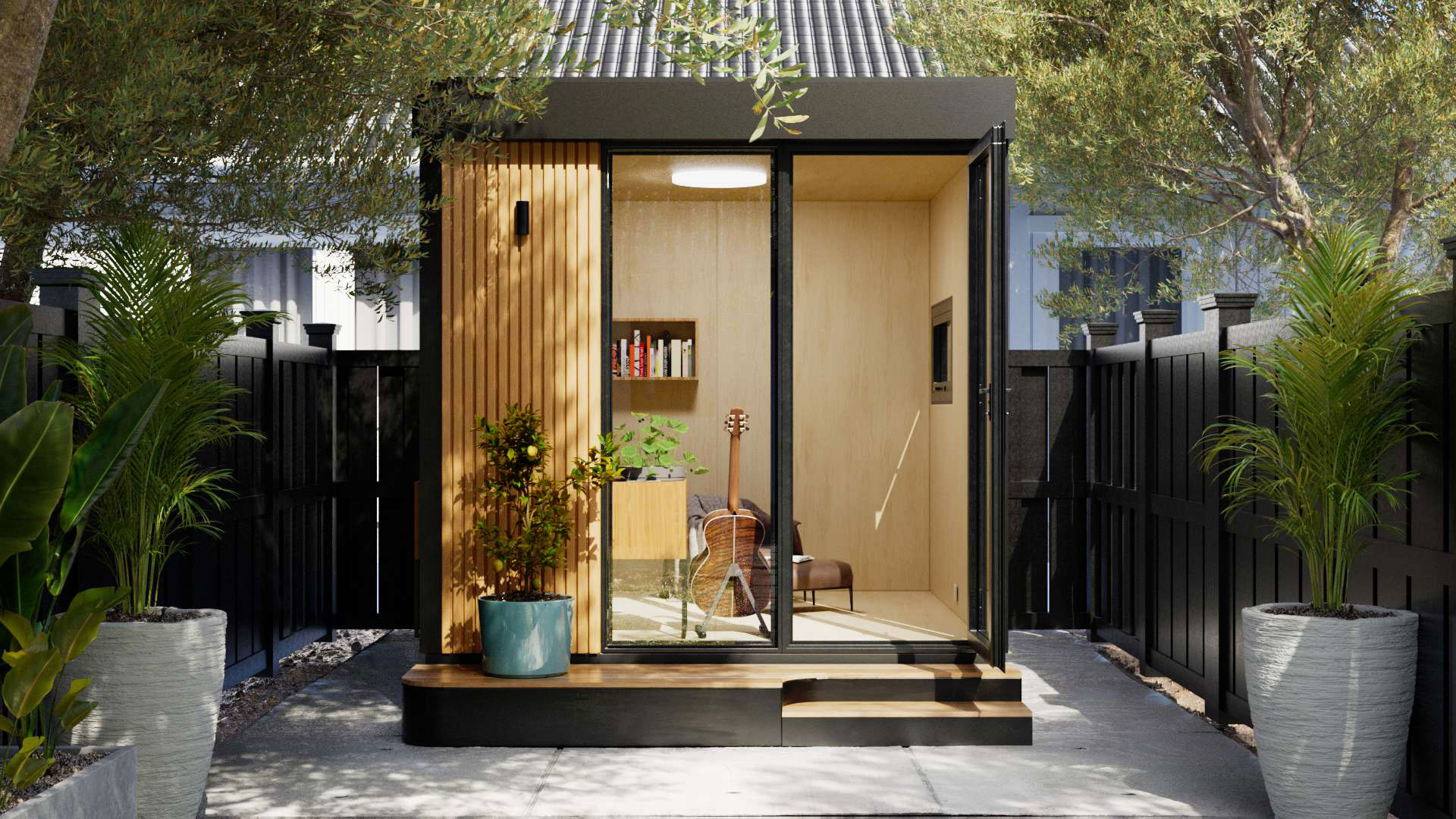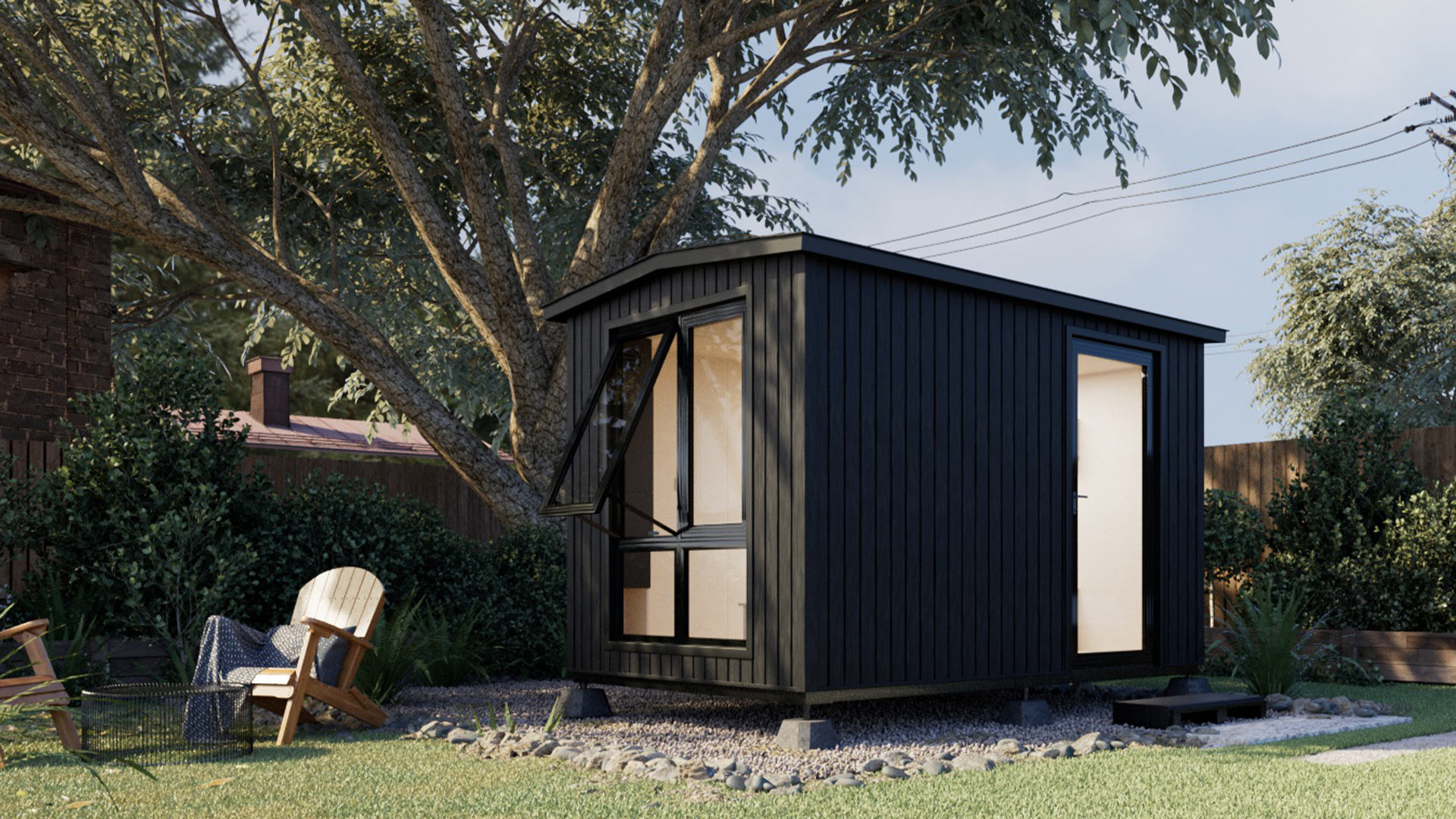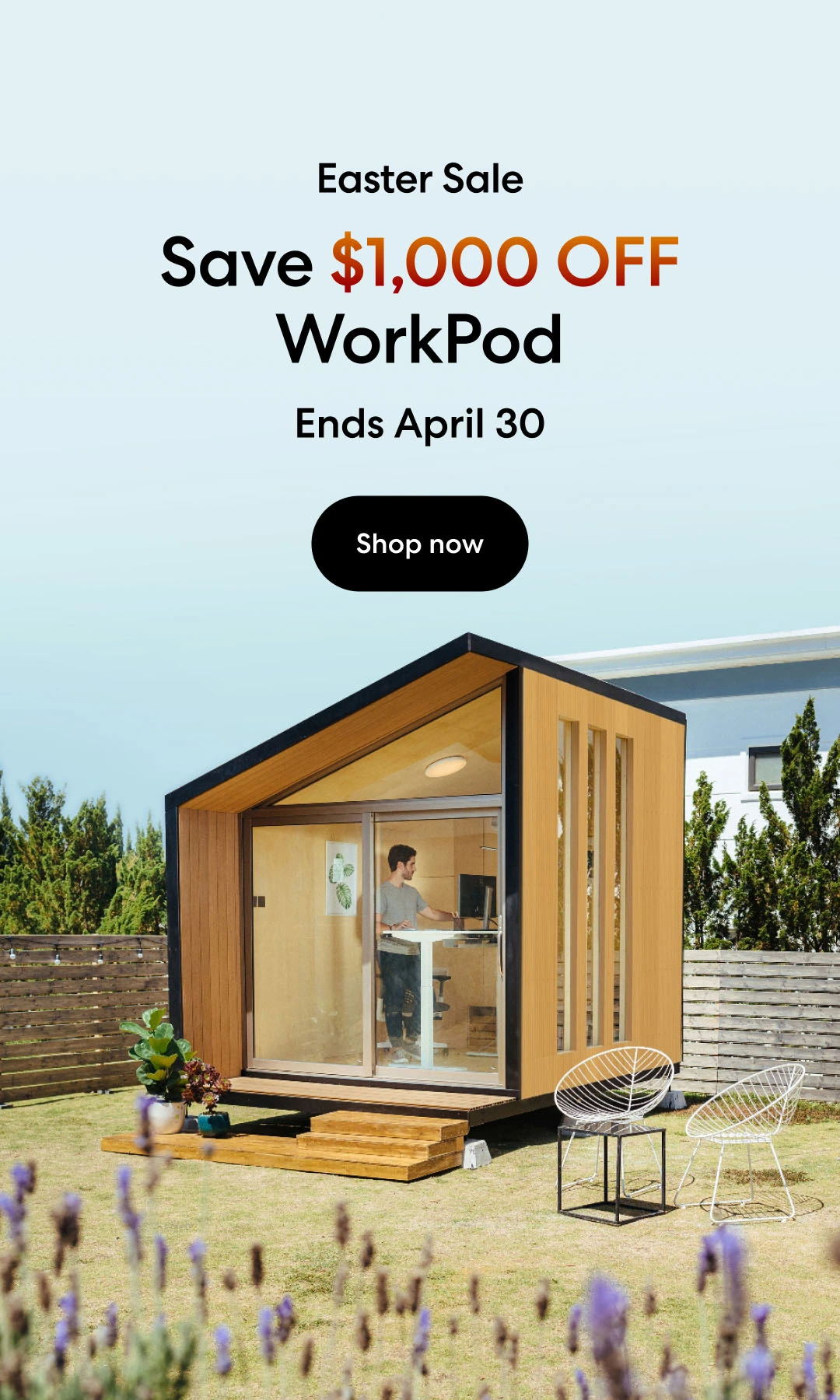
The Process of Building Manufactured Homes in California
Table of Contents
Manufactured homes in California have taken the world by storm. There are dozens of options available, and they have proven useful for many property owners in the area.
You must comply with a few rules and regulations to set up California manufactured homes. Of course, there are modular home builders in California who can help you get the process done without much hassle, so it mostly depends on who you get for help.
Regardless of which option you decide to go for, you must understand everything that goes into the process of creating luxury manufactured homes in California.
Learn About the Process of Building Manufactured Homes in California
Let’s start with the basics: what’s the “ADU” meaning? Essentially, the term stands for “Accessory Dwelling Unit.” It’s a secondary housing structure that you can build on your primary property.
Some people build ADUs in their backyard to have extra space to work or spend some time. Others buy them to have a guest house that doesn’t interfere with the main property.
The possibilities with ADUs are huge. All it takes is some creativity and picking the right materials to work with.
What Are the Different Stages of Building Luxury Manufactured Homes in California?
We wanted to make things simple enough, so we separated the guide into five stages. Whenever you look for manufactured homes in California for sale, they likely went under a similar building process.
When it comes to manufactured homes in California, most of them will be handled by factories, whereas you can take care of the installation. We suggest going for reputable modular home builders in California if you want to get things done quickly and seamlessly.
Let’s get started with the guide!
1. Planning and Foundation
The planning phase is probably the most important one among the rest. It guarantees whether your project is feasible or not.
First, you must ensure you’re complying with applicable laws and regulations surrounding manufactured homes in California. Most of the time, you won’t need a building permit for residential ADUs, as long as you meet the right guidelines.
How big can an ADU be in California? Remember, each state has different rules for setting up manufactured homes. According to new ADU laws in California (2024), your property can be up to 800-1,000 square feet in total measurements and 16 feet in height (or the number that your area allows).
The maximum size will vary depending on the type of ADU you get.
Don’t let the California ADU size limit discourage you; there are many options available to create a solid space for yourself or your family/guests.
Once you have a proposal plan, you must get it approved by your city/county. There are regulatory entities that must ensure your construction meets different standards of height and size, among other things.
You must get your project approved, as it will ensure you don’t have permission problems when using or renting the property.
Keep in mind that you can’t use these units for commercial purposes, although you can rent them after some time. If you want to rent, you must equip the unit with the necessary amenities and facilities, including toilets, showers, sinks, kitchens, etc.
Let’s talk about the foundation now. You must pick the right spot to set the ADU in. The ground must be compacted to a specific degree, and the earth underneath the unit must be graded.
Additionally, you must ensure the property has proper drainage so that you don’t have foundation problems in the future. Most of the time, you will be better off with a concrete foundation. You could also consider dirt foundations, but they may not be as stable.
2. Flooring, Walls, Siding, and Roofing
There’s plenty of detail that goes into the floor, walls, and roof. Usually, these different parts of the unit are made in modules so that they fit easily.
It’s often a great idea to work with reputable modular home builders in California for these steps, as this will ensure there are no mistakes that could affect the building process later.
During this step, you may also consider electrical wiring and plumbing lines, as well as insulation, drywall, sealants, etc.
3. Putting Utilities and Other Components Together
In the case of manufactured homes in California, each component is built to fit specific measurements. This is why it’s not so complicated to make everything fit once the construction process is done.
Moreover, many luxury manufactured homes in California are built in climate-controlled manufacturing plants, ensuring there are no weather delays. All you have to worry about is about setting up the unit once it arrives at your property.
4. Transportation and Setup
Once your unit is done, you must arrange the transportation and setup process. A team of experts will transport the manufactured home to the site you choose. Depending on the case, the unit could be slid or pushed into place. Sometimes, it could also be lifted onto the site.
Finally, you must attach the unit, reinforce it if necessary, and start connecting all the heating, cooling, electrical, and plumbing lines.
5. Compliance and Safety Inspections
Unless you’re buying pre-manufactured homes in California from a reputable company, you should conduct compliance/safety inspections from a third-party expert. This ensures there are no problems with the unit before you start using it.
It’s never a bad idea to be safe, so consider getting an inspection once everything is done.
That’s all you must know about building manufactured homes in California! Here’s a summary as a refresher:
- Plan what you want for your manufactured home and where you want it.
- Pick the right modular home builders in California.
- The unit is built in a controlled factory.
- Once the unit is finished, it gets transported to its destination and set up.
Is It Possible to Get Pre-Manufactured Homes in California?
Yes! Prefab homes in California ensure you don’t have to think too much about the construction process. Although you’re sacrificing a bit of liberty surrounding the ADU’s size and amenities, these are still amazing options for those who want to get something that covers most of their needs.
You can get different ADUs at Autonomous, which are built for excellence, practicality, and aesthetics. We’ll talk more about them below.
Discover the Autonomous ADU Lineup
Autonomous has three options for those looking for a prefab ADU. If you don’t want to think too much about the building process, these buildings were created to fit most ADU requirements in California.
What you have to do is check with your local government or regulatory entity to see if the unit you want to get is suitable for your home. Other than that, you can simply wait until the setup process is done, and you can get right to decorating the ADU to your liking.
Let’s learn more about each Autonomous ADU and how it benefits you.
1. WorkPod
The Autonomous WorkPod is the ideal solution for most homeowners looking for a productivity haven. Not only does it look stylish, but it also offers plenty of amenities to ensure this becomes your new sacred space to work, relax, or play.
Features
Thanks to the WorkPod’s materials, you can set it up on any terrain with ease, which already eliminates some of the confusion that might come with choosing a foundation.
These ADUs are weatherproof and humidity-resistant, so rest assured that you’ll have the unit for many years (or generations).
However, one of the best features of the WorkPod is that it can be set up in a couple of days! Most manufactured homes in California take months to get built, shipped, and installed, so this is excellent news if you want to get everything done faster.
Here are some extra details:
- Insulation Range: 45 to 100°F.
- Weight Capacity: 2.9 tons.
- Measurements: 98 sq. ft.
The WorkPod comes fully wired and ready to be used. In other words, this is an effortless way to create a new space on your property.
Pros
- Fast setup
- Customization options
- Timeless appeal
- No permit is needed in most localities.
- You can get it with pre-installed furniture.
Cons
- It may not be big enough for some people.
2. WorkPod mini
Do you want something more basic to get started? Try out the WorkPod mini.
Even though it’s a lighter version of the WorkPod without much customization, it’s still more than enough for those who want the experience of an ADU from scratch.
Features
The WorkPod mini allows you to get the extra space you’ve always wanted without having to think about permits, renovation costs, or other excruciating details about your manufactured home.
Something that makes the WorkPod mini shine is its design. It will fit most properties with ease thanks to its minimalism.
As with the WorkPod, this ADU was built to withstand all the elements, and it can fit any terrain with ease.
You can install the ADU yourself or hire a professional to do it, although this may get the price slightly higher. If you need a permit to install the ADU, you can talk to the Autonomous team for guidance on the proposal.
- Weight Capacity: 1.3 tons.
- Measurements: 80 sq. ft.
Pros
- Great price
- One-year warranty
- Professional installation (for an extra fee and in California only)
- No permit is required in most localities.
Cons
- It doesn’t come with furniture.
- You can’t change the window placement.
3. WorkPod Versatile
The WorkPod Versatile is for those who want the ultimate ADU experience. If you’re looking for a multi-purpose unit with slightly more space than the other two options, this might be the ideal pick.
Features
Like with the standard WorkPod, you can customize your WorkPod Versatile order thoroughly. This includes picking the window placement and whether you want the unit to come with furniture.
The WorkPod Versatile is the biggest unit on the list, but it’s still compact enough to fit most backyard areas. We recommend you choose this option if you’re looking for some extra space to fit more items like a couch, a sofa table, and your entire PC setup.
- Insulation Range: 40 to 105°F.
- Weight Capacity: 2.9 tons.
- Measurements: 105 sq. ft.
Pros
- Bigger size
- Easy and fast assembly
- Compatibility with most terrains
- No permit is required in most localities.
Cons
- Higher price tag
Which Option Should You Get?
It all comes down to budget, preferences, and local regulations when picking your next backyard office pod. The first thing you should do is file a construction proposal, and once you get it approved, you can start building.
What if you don’t have enough money for the construction process? You could apply for California ADU grants, which are financial assistance programs offered to eligible homeowners. This could help if you’re on a budget and need to get a unit for your property.
Once you meet all the requirements for these grants and finish setting up everything, you can start renting the unit to slowly earn back what you invested.
On the other hand, if you don’t want to think about those steps too much, you could get pre-manufactured homes in California. At Autonomous, the three options were created with specific measures that won’t require a permit in most areas.
With Autonomous, you can get your ADU set up within a few days with a streamlined process, making this unique addition to your home more convenient.
If you’re going with Autonomous, consider what your needs are, which additions you consider convenient, and other factors. Those who want the basics, for example, will benefit from the WorkPod mini. Others who want the full package can go for the WorkPod.
Finally, if you’re looking for a multi-purpose ADU, the WorkPod Versatile is the right one to pick.
Bottom Line
There’s a lot of thought that goes into California manufactured homes. These are perfect for many people, especially those who want a dedicated space for their work, gaming, or unwind sessions.
If you’re looking for manufactured homes in California for sale, the options at Autonomous may do the trick. Having a tiny backyard home has more benefits than you think, and it could be a great addition to your property if you set it up correctly.
We hope this guide has helped you understand how luxury manufactured homes in California work.
Stay connected with us!
Subscribe to our weekly updates to stay in the loop about our latest innovations and community news!
Interested in a Link Placement?
Spread the word
.svg)

/https://storage.googleapis.com/s3-autonomous-upgrade-3/production/ecm/240315/4(1).jpg)





/https://storage.googleapis.com/s3-autonomous-upgrade-3/production/ecm/230914/bulk-order-sep-2023-720x1200-CTA-min.jpg)

/https://storage.googleapis.com/s3-autonomous-upgrade-3/production/ecm/230824/image_78sctd8d_1692158325567_raw-80639991-bedf-4e11-a77c-1c8e0a351b40.jpg)